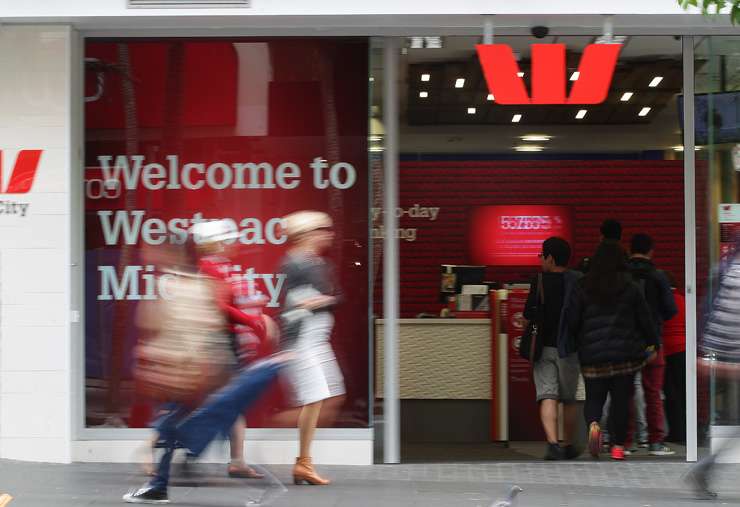Most people need to borrow to buy a home. The mortgage (also known as a home loan) combined with your deposit make up the purchase price of the property. In most cases you’ll need to have 20% of the purchase price of the house saved as a deposit before the home loan application process starts.
Starting out
How much you can borrow for a home loan depends on the size of your deposit. If you're buying an existing property, you’ll usually need a 20% deposit. For a brand-new home, that percentage drops to 10%. Buyers who qualify for the government’s First Home Loan scheme only need a 5% deposit.
The first hurdle to pass for buyers is the bank’s affordability test, which considers whether the surplus leftover once your expenses are deducted from your income is sufficient to cover mortgage repayments.
Start your property search
Home loan eligibility criteria
When banks assess your loan, they want to determine if you are a good risk to lend to. Under the Credit Contracts and Consumer Finance Act (CCCFA), banks and other lenders must lend responsibly. Cutting back your spending six months prior to applying for a mortgage can help your application considerably.
In general, your home loan eligibility will be assessed on the following:
• Income
• Expenses (both essential and non-essential)
• Consumer debt (including student loans)
• Your credit record
• Whether you’re a casual or permanent employee, or self-employed
Consumer debt, including student loans, reduces the amount you can borrow because any repayments are deducted from your available income. You should always be upfront with your mortgage adviser (broker) or bank mortgage manager about your debts when you’re applying for a mortgage.
If you don’t qualify to borrow from a bank or can’t get as much as you need, there are other options.
You could delay your purchase. That allows you to build up a bigger deposit and/or increase your income, both of which allow you to borrow more.
A small proportion of buyers who can’t borrow from the bank and don’t want to wait borrow instead through “non-bank lenders” such as building societies and finance companies. A mortgage adviser can arrange this. But the trade-off is that usually you’ll pay a higher interest rate for loans from non-bank lenders.
Mortgage / income calculator tools
Mortgage calculators can give you an indication of how much you may be eligible to borrow. Most banks have affordability calculators, which crunch your income and spending to determine how much you can comfortably pay each fortnight or month.
Useful resources include:
• Westpac home loan affordability calculator
• ASB affordability calculator
• BNZ affordability calculator
How much should you be earning to pay off your mortgage?
There’s no magic sum you need to earn to be eligible for a mortgage. It’s less about how much you earn and more about being prudent with your finances.
The general rule is that you will need to earn sufficient money to cover repayments after your expenses.

Banks will assess your application based on your income, expenses and debts. Photo / Doug Sherring
When assessing your ability to pay, the bank will take into account expenses that you didn’t have before buying. They include council rates, maintenance and home insurance, which is compulsory if you have a mortgage.
Even if it looks like you can afford to borrow, sometimes the banks decline. That’s because they determine affordability using a “test rate”, which is several percent higher than the actual interest rate you’ll pay. The reason for this is that the lender wants to stress-test your finances to ensure you can still afford to pay if mortgage rates rise.
Different types of home loans
There are different types of home loans. The most common ones are:
• Table loans: With table loans, you pay a fixed amount each fortnight or month. In the beginning, most of the payment is interest, but as the balance slowly reduces, a greater portion of your payments goes to pay off the capital.
• Revolving credit home loan: A revolving credit home loan is like a giant overdraft. You save interest when your wages go into the account each month because it reduces the outstanding balance. You need to be very disciplined for this sort of home loan to work, but it’s an option for those who are financially prudent.
• Reducing balance loans: A reducing loan is similar, but has higher repayments at the beginning because you’re paying more of the capital than a table loan. As the amount outstanding to the bank goes down, so too does the interest payments component.
• Floating versus fixed interest rates: As well as choosing the most appropriate type of home loan for your circumstances, you also need to consider floating versus fixed interest rates.
A floating (variable) interest rate can rise or fall at any time, affecting your repayments. A fixed interest rate (for anywhere between one and five years) ensures that the interest rate you pay on your loan is fixed for the entirety of that period. The interest portion of your repayments doesn’t change until the fixed-rate period expires.

The size of your mortgage will depend on the types of properties you are looking at. Photo / Getty Images
A common tactic for home buyers is to split a mortgage over more than one fixed-rate term, and to keep a portion on a floating rate, which allows extra repayments, paying down the home loan faster.
If you’re unsure about which home loan options are best for you, your mortgage adviser (broker) or mobile manager can help identify the most appropriate for your financial circumstances.
Applying for a mortgage: The home loan application process
Before you apply for a home loan, you’ll need to get some documentation together. Regardless of whether you’re going direct to a bank as your lender or going through a mortgage adviser you’re going to need the following:
• Proof of income
• A record of outgoings and debts
• Evidence of your deposit
• Bank statements from the last six months
• A copy of your photo ID, and
• Proof of address.
It costs the same to complete the application with a mortgage adviser or the bank’s mobile lending manager as doing it online. They can give you a clear picture of what to expect from your lender before you sign the mortgage documentation.
If going directly to the bank rather than via a mortgage adviser, make sure you ask the bank about the interest rate, its fees, your ability to make changes to your mortgage once set up, and what happens if you break a fixed-rate term.
You are not limited to borrowing from your own bank. Shop around. When competition is high between banks, you can often negotiate the interest rate down or get the loan application fees reduced.
KiwiSaver First Home Withdrawal
If you already have a property lined up, then it’s a good idea to get your KiwiSaver withdrawal application in at this time.
As a rule of thumb, First Home Withdrawal can take anywhere between 20 days and four weeks to sort out. So get the paperwork together at the same time as choosing a lender. If you’re unsure about the applications required for you to access your KiwiSaver funds for buying your first home, or if you have questions about your own eligibility, click here for more information.
How long does applying for a home loan take?
Typically you need 14 days to three weeks for the bank to assess and approve your home loan application. Make contact with the bank or mortgage adviser much earlier than that.
If you're applying for a home loan while you’re self-employed, you’re going to need the following on top of the standard supporting documentation:
• Proof of income (such as your balance sheet profit and loss, or cash flow statements)
• IRD documents (GST and IR4 returns).
It can sometimes be harder to get a mortgage if you’re self-employed because the standard eligibility criteria is more suited to employees. If you don’t qualify for a home loan from a bank, mortgage advisers can place your business with alternative non-bank lenders. That usually comes at the cost of a higher interest rate.

Banks will ask self-employed applicants for proof of income. Photo / Getty Images
Mortgage advisers can work with you to pick the most appropriate alternative lender for your purchase.
Getting pre-approval for your home loan
Home buyers often apply to get pre-approved by a bank to get an idea of their potential buying power and price range. This gives you more confidence to shop around for a property. It shows to real estate agents and vendors that you are a serious buyer.
Pre-approval is an indication of what you can borrow if the bank approves of the property you want to buy. If interest rates rise, loan-to-value ratios (LVRs) and other rules change, or you don’t manage to settle within the pre-approval period, you will most likely need to reapply for pre-approval. This is something to be very wary of if buying at auction, going unconditional on any property, or buying off-the-plan when the build could take longer than expected.
Contact a mortgage adviser or your lender of choice and discuss your circumstances with them. They will be able to assess your mortgage eligibility and tell you what they’re willing to lend you subject to conditions.
Getting pre-approval costs nothing. Nor does it lock you into the lender.
What about using a mortgage broker?
Both banks’ mobile mortgage managers and independent mortgage advisers can give first-home buyers a great deal of help.
They will run through issues such as:
• Educating you on mortgage basics
• Guiding you through the home loan application process
• Assisting you with eligibility questions
• Explaining the different types of mortgages
• Advising on fixed versus floating rates
• Helping you complete the paperwork
• Arranging pre-approval for finance, and
• Other general advice such as what happens if you default on repayments.
The advantages of using a mortgage broker
Mortgage advisers are a go-between, working on your behalf. They can advise you on how to improve your ability to borrow, shop around for you, and negotiate with the banks and other lenders. The service is free if your mortgage is placed with a bank. If you don’t fit the bank criteria and borrow from a non-bank lender, you will need to pay a fee for this.
Mortgage advisers also save on legwork because they know each bank’s criteria, and they can argue your case if your loan is borderline. They can also negotiate conditions such as guarantees. If you have consumer debt that’s standing in your way of getting a mortgage, mortgage advisers can help restructure that debt or give advice about paying it off faster.
First-home buyers can find the purchase process daunting. Having a mortgage adviser in your corner takes some of the uncertainty out. They’re experts in their field and work for you.
Things to keep in mind when getting a home loan
• You can only borrow as much as your deposit and income/expenses will allow you
• Make sure you budget in expenses such as council rates, maintenance and insurance
• Mortgage managers and mortgage advisers can help you navigate the process
• Pre-approval isn’t a guarantee that you can borrow. It’s an indication and expires after a period of time
• Self-employed applicants need additional documentation and may have to consider alternative lenders
-------
>> Next steps: The OneRoof first home buyer's guide part 4 - What grants do first home buyers get?













































































